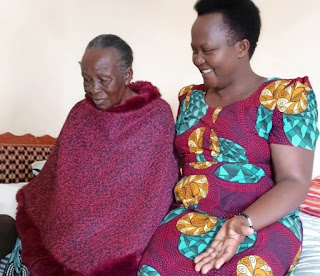Elections Are Here: Will Your Child Vote, Lead, or Riot?
Elections Are Here: Will Your Child Vote, Lead, or Riot?
By Dickson Tumuramye
For some parents,
politics is seen as a space for adults, or worse, a dangerous game best
avoided. But that mindset has consequences. Our children are not just future
voters and leaders; they are already watching, listening, and learning from
what we say and how we behave during election seasons.
If we remain silent, we
leave a vacuum that can be filled by misinformation, manipulation, or even
violence. And so the question arises: when elections come, will your child
vote, lead, or riot?
What Does Responsible
Political Participation Look Like?
Political engagement
doesn’t start at the polling station, and it doesn’t end with voting. It
includes staying informed, making value-based decisions, and holding leaders
accountable. Contesting for office is not about prestige; it is about servant
leadership, representation, and a heart for community development.
When our children grow up
seeing politics reduced to insults, bribery, tribalism, or violence, they may
grow up either apathetic or aggressive. Neither option builds a healthy
democracy. As we see leaders who don’t intend to leave power for others, even
our children think it is the way to go.
What Should We Be
Teaching Our Children About Politics?
Politics Is Not a Dirty Game; It’s a
Public Trust
Teach them that leadership is a platform to serve others, not a shortcut to
personal wealth. Remind them that integrity, not popularity, makes a great
leader. It is not a job but a service.
Your Vote Is Your Power
Every vote is a voice. Abstaining due to ignorance or hopelessness is still a
choice, with term consequences. Therefore, they need to vote for leaders of
their choice based on merit, not coercion or influence, especially materialism.
Not All Activism Is Lawful
Young people need to understand their constitutional right to peaceful protest,
but also the dangers of being used in unlawful demonstrations that lead to
arrests, injuries, or even death. Rights come with responsibilities. They also
need to wisely understand the political climate and choose a better life over imprisonment.
Don’t Be Used as a Political Tool
Many young people are manipulated—paid to riot, spread propaganda, or attack
opponents. Some are given transport refunds, t-shirts, or empty promises to
support causes they don’t understand. Let us teach them to think critically and
not trade their conscience for coins.
Christian and Moral Values Still Matter
If we are raising children with values of honesty, humility, respect, and
justice, these must also guide their political opinions and actions. Faith
should not be checked at the gate of political discussion.
How Can Parents Guard
Their Children from Political Chaos?
It’s not enough to hope
they “stay out of trouble.” As parents and mentors, we must:
Start civic
conversations at home early
Don’t wait for
schools or politicians to shape your child’s understanding of governance. As
parents, we must take initiative in educating our children about democracy,
leadership, and national responsibility. Talk about current events in ways they
can understand and allow them to ask questions freely.
Talk about the
news and campaign events together
Watching rallies,
debates, or reading political headlines should not be left to children alone.
Engage them in interpreting what they see and hear, helping them separate fact
from propaganda, and building a foundation for independent, values-based thinking.
Before they take an action, they should make a very informed decision to avoid
any risks or future regrets. They should learn to consult you in case they need
to engage in any active politics, like actively campaigning for any candidate, attending
public rallies, etc, so that you guide them accordingly.
Keep an eye on peer influence and online platforms
Many young people
are misled by what they see on social media or hear from friends, especially
during election seasons. Radical messages and emotionally charged content can
lure them into risky actions. Parents must stay alert and guide their children
through these spaces wisely.
Lead by example
Our children are not just
listening to what we say. They are watching how we act. If we insult leaders,
promote tribalism, or express apathy, they will copy that behavior. If we speak
with respect, vote responsibly, and demonstrate civic maturity, we lay a
foundation they can follow with confidence. Remember, our own attitudes during
election periods are shaping theirs. Let your home be a place where political
issues are discussed respectfully, not where tribal slurs and pessimism are
planted.
In Conclusion: Be Their
First Political Teacher
We must raise a
generation that understands democracy, values peace, and sees leadership as a
divine responsibility. Our children should grow up believing they can make a
difference by voting, leading, and challenging systems with wisdom, not weapons.
The election season is
not just about who wins. It is about what values win in the hearts of our
children. And that depends largely on us—the parents, guardians, and faith
leaders of this generation. So, when the campaign trucks pass, the rallies
erupt, and social media boils, ask yourself again: Will your child vote, lead,
or riot?
The writer is the
executive director of Hope Regeneration Africa, a parenting coach, marriage
counselor, and founder of the Men of Purpose Mentorship Program.
Follow more articles on:




Comments
Post a Comment